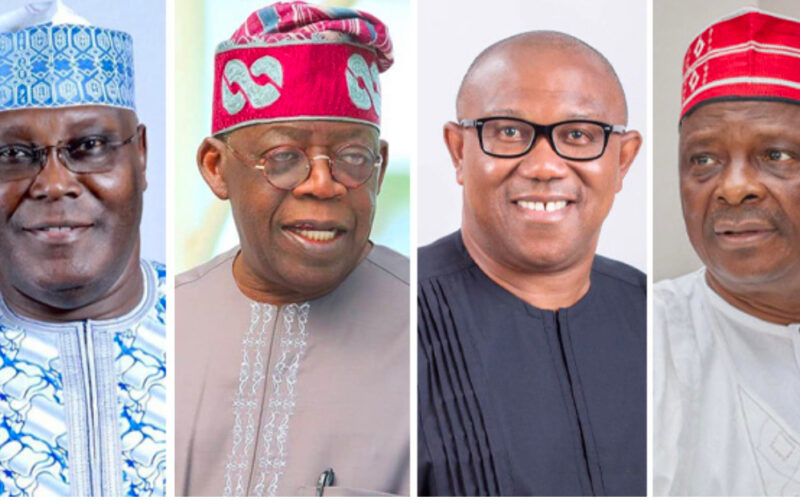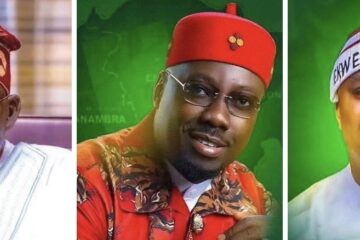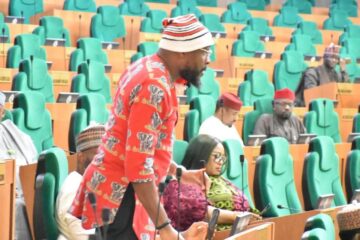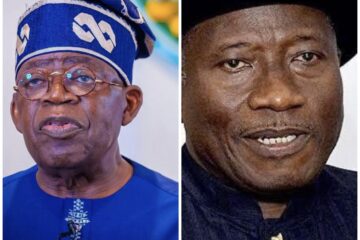Amid the growing outcry against the dwindling impact of governance on the economy and security of Nigerians, various political interests have in the last few months talked about the formation of fresh coalitions or mega parties in the country.
Leading opposition parties such as the Peoples Democratic Party (PDP), the New Nigeria Peoples Party (NNPP), the Social Democratic Party (SDP), the African Democratic Congress (ADC), the Young Progressive Party (YPP), Allied Peoples Movement (APM) and the Zenith Labour Party (ZLP) said the move is to stop the governing All Progressives Congress (APC) from forcing Nigeria into a one-party state.
Although leaders of the coalition talks have ruled out merger in the proposed political arrangement, the political weapon in such a coalition is enough to send jitters to the party in government.
With strong backing from political leaders like former vice president Atiku Abubakar and former Kano State governor, Rabiu Musa Kwankwaso, the coalition, according to political watchers, might gain credibility and acceptance.
The presidential candidate of the NNPP had shortly after the Supreme Court verdict on Kano governorship, refuted having any political agreement with Tinubu.
Dispelling rumours of pre-existing agreements, Kwankwaso stated: “To the best of my knowledge, I have not reached an agreement with anybody.”
Kwankwaso emphasised the need for collaboration between political parties where necessary.
He stated: “We have our party; they have theirs. We will work together where necessary. On the issue of joining the government, only time can tell.”
On his part, Atiku had shortly after the coalition move was made public, declared his readiness to lead it to strengthen democracy in the country.
The PDP presidential candidate in the 2023 elections, in a congratulatory message to all governors of opposition parties whose elections were validated by the Supreme Court penultimate Friday, stated that he would lead alongside governors and other political leaders in the opposition parties.
Atiku’s position, which was made public in a statement released by his media office, reaffirmed that “only a united opposition force can strengthen democracy in Nigeria.”
“I am as prepared as ever to lead the charge, alongside all our leaders and governors, for the good of our country,” Atiku declared.
To checkmate the proposed coalition, increasing economic hardship and the rising spate of insecurity are serious issues the ruling party must contend with.
The spate of banditry and kidnapping has increased uncontrollably across the country particularly in the North and the Federal Capital Territory (FCT) in the last few months.
The issue is more disturbing to leaders and civil society organisations including former head of state, General Abdulsalami Abubakar, who is leading a coalition to push for more proactive steps against insecurity.
Last Thursday, a coalition of Northern Groups (CNG), disclosed that Abubakar would chair a two-day roundtable on rising insecurity in the country.
According to the coalition, the North has become a breeding ground for terrorism, banditry, kidnapping and other criminal activities.
National Coordinator of CNG, Jamilu Charanchi, at a briefing in Abuja, disclosed that: “The roundtable will bring together frontline Northern states governors, national security chiefs, heads of security agencies, academics, policymakers, security experts, judicial officers, traditional rulers, clerics and other critical stakeholders.
“The aim is to develop strategies for collaboration between federal, state and local authorities, as well as the involvement of the general public. The outcome will be a module to democratise the security project by engaging individuals and communities, as well as various stakeholders, to take ownership of the security efforts in the region.”
He said the committee, which had been working for the past three months, examined the inadequate response to the security crisis, highlighting the absence of synergy among security agencies, the lack of cooperation between the states and Federal Government and the neglect of public involvement in combating these issues.
On the economic front, the National Bureau of Statistics (NBS) last week disclosed that Nigeria’s inflation hit 28.92 per cent in December 2023. According to the report, the food inflation rate in December 2023 quickened to 33.93 per cent
The PDP, which is the most dominant party in the proposed coalition, has been raising issues of non-performance and incompetence against the APC administration.
The party maintains that the people remain impoverished as the government “fails to address the critical issues of decayed infrastructure, comatose manufacturing and productive sectors; crushing 28 per cent inflation rate, continuing plunge of the naira, alarming unemployment, excruciating poverty and economic hardship occasioned by the reckless, ill-advised and insensitive policies and programmes of this administration.”
Tagged, ‘Coalition of Concerned Political Parties (CCPP), the new political realignment came to light last December when its leaders met in Abuja at the national secretariat of the SDP.
National Chairman of the SDP, Shehu Gabam, said the coalition is not a merger but rather a united front against the ruling party.
“We are worried about the level of instability the country is going through,” he said.
In his remarks, the acting National Secretary of the PDP, Setonji Koshoedo, who represented the acting National Chairman of the party, Umar Damagum, said the coalition would offer a strong opposition for the good of the country.
“This coalition wants to offer strong opposition for the good of Nigeria. Our duty is to offer alternative solutions to government policies,” he said.
Also speaking on the coalition, the National Chairman of the ADC, Ralph Nwosu, said the idea behind the coalition “is to strengthen our democracy. We have seen that people in government are trying to stifle viable opposition.”
Most of the leaders of the parties that spoke to journalists reiterated that the coming together of the opposition parties was not yet a merger.
The Peoples Redemption Party (PRP) has however rejected Atiku as the rallying point of opposition parties in Nigeria ahead of the 2027 general election.
The party described Atiku and PDP as the same bedfellows as APC, noting that it does not share anything in common with the ruling and main opposition party.
PRP National chairman, Falalu Bello, at a press briefing in Abuja, said: “We have been a political party since 1979. We stand for something but we are not going to merge with any party that does not believe in what we believe in. We are on the left of the spectrum, not on the right. For me, PDP and APC are the same thing. Both have ruled us for 25 years collectively and we have seen what they did. Was Atiku not the vice president in the PDP government? Are they different? They are all capitalists. China today has the highest number of billionaires and they practice a mixed economy.
“When you are going to bed, you should go with someone you can sleep with well. We are who we are and remain consistent as a party. We were once deregistered but fought up to the Supreme Court to get our registration back.
“PRP is not against alliance or merger but we do that based on principle not based on Atiku trying to be president. We are not going to be a party to any alliance that is not in line with our principles. The only thing we have in common with PDP is that we are all political parties.
“Ideally, Labour Party should be our partner. They came here before the election to talk to us but they were more concerned about who will become the presidential candidate. I don’t believe in what PDP stands for. I have known Atiku since 1984 as a person, but that is a different matter on whether I like his policies or not. We believe in alliance or merger but we should have an alliance with people of like minds.” (Guardian)




